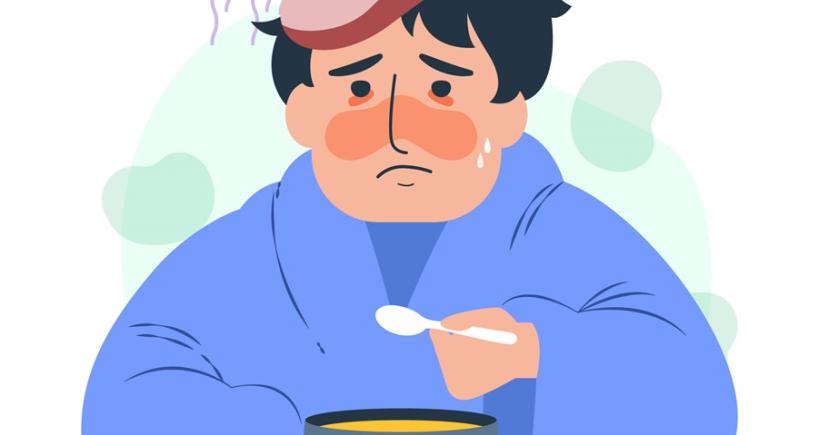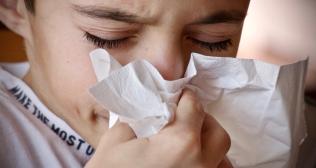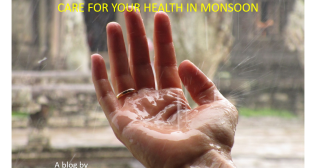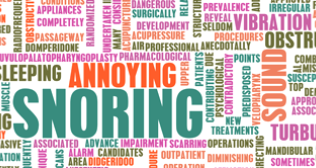
Facts About the Common Cold: Cause, Symptoms, and Prevention
Introduction
Common cold is an upper respiratory infection that affects the nose, throat, sinuses, and windpipe. However, despite its ubiquitous presence, it remains a perplexing ailment. Often dismissed as a minor inconvenience, the infection can cause significant discomfort and disrupt daily life. While most people recover from a common cold without medication in 7 to 10 days, a healthcare provider should be consulted if symptoms persist or worsen.
Causes of Common Cold
Common cold is primarily caused by viral infections, with rhinovirus being the most prevalent culprit. Other viruses implicated in colds include coronaviruses, adenoviruses, and respiratory syncytial virus (RSV). These viruses are highly contagious and transmitted through respiratory droplets when an infected person coughs, sneezes, or touches surfaces. An interesting fact is that cold weather doesn’t cause the common cold. The infections during winter can occur due to other factors, such as staying indoors close to each other and low humidity, causing dry nasal passages to be more susceptible to cold viruses.
Who is Most at Risk?
Anyone can get a cold, regardless of age, gender, or overall health status. However, certain individuals are more at risk.
- Infants, young children, and older adults are more susceptible to cold viruses due to their developing or weakened immune systems. Children attending daycare or school may be at higher risk due to increased exposure to other children who may be carriers of cold viruses.
- Individuals with compromised immune systems, such as those with HIV/AIDS, undergoing chemotherapy, or taking immunosuppressive medications, are more vulnerable.
- Asthma, chronic obstructive pulmonary disease (COPD), diabetes, and heart disease weaken the respiratory tract’s defenses and impair immune function, increasing the vulnerability of the affected people to common cold.
- People who frequently use public transport or work in crowded environments are more at risk.
- Tobacco smoke irritates the respiratory tract and compromises immune function, making smokers more susceptible to common cold. Secondhand smoke exposure can also increase the risk of colds, especially in children.
Symptoms of Common Cold
Symptoms of colds manifest within a couple of days after the virus enters the body and last up to many weeks. Recognizing them helps in early intervention.
Typical symptoms include:
- Runny or congested nose
- Sneezing
- Sore throat
- Coughing
- Mild body aches
- Fatigue
- Low-grade fever (less common in adults than in children)
Diagnosing the condition is often based on clinical presentation and symptomatology. Healthcare providers may conduct a physical examination to assess nasal congestion, throat inflammation, and other signs of respiratory infection. Laboratory tests are generally not required for diagnosis unless complications or severe symptoms warrant further investigation.
How To Treat Common Cold?
Treatment focuses on alleviating the symptoms and supporting the body’s natural healing process. It is also important to note that since colds are caused by viruses, treatment with antibiotics doesn’t help. Some management approaches include:
- Rest: Adequate rest allows the body to conserve energy and devote resources to fighting viral infection.
- Hydration: Drinking fluids and inhaling warm steam help prevent dehydration and loosen mucus secretions, easing nasal congestion.
- Over-the-Counter Remedies: Pain relievers can help reduce fever and relieve body aches. Decongestants and antihistamines provide symptomatic relief.
- Gargling: Warm, salt water gargling helps soothe sore throat and reduce throat pain.
- Skincare: Petroleum jelly can be used for dry, chapped skin around the nose and lips.
What You Can Do to Prevent Common Cold
- Wash your hands regularly with soap and water, especially after coughing, sneezing, or touching surfaces in public places, to prevent the spread of viruses. When soap and water are unavailable, use an alcohol-based hand sanitizer to disinfect your hands.
- Limit close contact with individuals who are sick, particularly those exhibiting cold symptoms such as coughing or sneezing.
- Cover your nose and mouth while sneezing or coughing to avoid spreading the infected respiratory droplets.
- Regularly disinfect frequently touched surfaces in your home and workplace, such as doorknobs, countertops, light switches, and electronic devices.
- Maintain a healthy lifestyle by eating a balanced diet of fruits, vegetables, whole grains, and lean proteins. Stay hydrated by drinking plenty of fluids, and consider incorporating immune-boosting foods, such as garlic, ginger, citrus fruits, and yogurt, into your diet.
- Prioritize sleep to optimize immune function and overall health and support your immune system’s ability to fight off infections.
- Chronic stress can weaken the immune system. Stress-reduction techniques, such as mindfulness meditation, deep breathing exercises, yoga, or engaging hobbies, can help.
- Exercising for at least 30 minutes daily enhances immune function and reduces the incidence of respiratory infections.
- Vaccination against seasonal influenza (flu) can help reduce the risk of contracting influenza viruses, which often circulate concurrently with cold-causing viruses during winter.
Complications of Common Cold
While common cold mostly resolves without complications, some individuals with weakened immune systems or underlying health conditions may develop complications.
Potential complications include:
- Secondary Infections: Cold viruses can weaken the respiratory tract’s defenses, predisposing individuals to secondary bacterial infections, such as sinusitis, ear infections, or bronchitis.
- Exacerbation of Chronic Conditions: Individuals with pre-existing respiratory conditions, such as asthma or chronic obstructive pulmonary disease (COPD), may experience worsening symptoms during a cold.
- Pneumonia: In rare cases, severe colds caused by certain viruses can progress to pneumonia, a severe respiratory infection requiring medical attention.
Though often dismissed as a minor ailment, common cold remains a significant health concern with widespread implications. By understanding the causes, symptoms, diagnosis, treatment, prevention, and potential complications of common cold, individuals can take proactive steps to minimize its impact and protect their respiratory health. Through diligent hygiene practices, immune-boosting strategies, and prudent management of symptoms, we can navigate the cold season with resilience and grit.
Popular Searches :
Hospitals: Cancer Hospital in Delhi | Best Heart Hospital in Delhi | Hospital in Amritsar | Hospital in Ludhiana | Hospitals in Mohali | Hospital in Faridabad | Hospitals in Gurgaon | Best Hospital in Jaipur | Hospitals in Greater Noida | Hospitals in Noida | Best Kidney Hospital in Kolkata | Best Hospital in Kolkata | Hospitals in Rajajinagar Bangalore | Hospitals in Richmond Road Bangalore | Hospitals in Nagarbhavi Bangalore | Hospital in Kalyan West | Hospitals in Mulund | Best Hospital in India | Gastroenterologist in Jaipur | Cardiology Hospital in India
Doctors: Dr. Rana Patir | Dr. Rajesh Benny | Dr. Rahul Bhargava | Dr. Jayant Arora | Dr. Anoop Misra | Dr. Manu Tiwari | Dr. Praveer Agarwal | Dr. Arup Ratan Dutta | Dr. Meenakshi Ahuja | Dr. Anoop Jhurani | Dr. Shivaji Basu | Dr. Subhash Jangid | Dr. Atul Mathur | Dr. Gurinder Bedi | Dr. Monika Wadhawan | Dr. Debasis Datta | Dr. Shrinivas Narayan | Dr. Praveen Gupta | Dr. Nitin Jha | Dr. Raghu Nagaraj | Dr. Ashok Seth | Dr. Sandeep Vaishya | Dr. Atul Mishra | Dr. Z S Meharwal | Dr. Ajay Bhalla | Dr. Atul Kumar Mittal | Dr. Arvind Kumar Khurana | Dr. Narayan Hulse | Dr. Samir Parikh | Dr. Amit Javed | Dr. Narayan Banerjee | Dr. Bimlesh Dhar Pandey | Dr. Arghya Chattopadhyay | Dr. G.R. Vijay Kumar | Dr Ashok Gupta | Dr. Gourdas Choudhuri | Dr. Sushrut Singh | Dr. N.C. Krishnamani | Dr. Atampreet Singh | Dr. Vivek Jawali | Dr. Sanjeev Gulati | Dr. Amite Pankaj Aggarwal | Dr. Ajay Kaul | Dr. Sunita Varma | Dr. Manoj Kumar Goel | Dr. R Muralidharan | Dr. Sushmita Roychowdhury | Dr. T.S. MAHANT | Dr. UDIPTA RAY | Dr. Aparna Jaswal | Dr. Ravul Jindal | Dr. Savyasachi Saxena | Dr. Ajay Kumar Kriplani | Dr. Nitesh Rohatgi | Dr. Anupam Jindal |
Specialties: Heart Lung Transplant | Orthopedic | Cardiology Interventional | Obstetrics & Gynaecology | Onco Radiation | Neurosurgery |










}}drupal-data/images/blog-lists.png)








